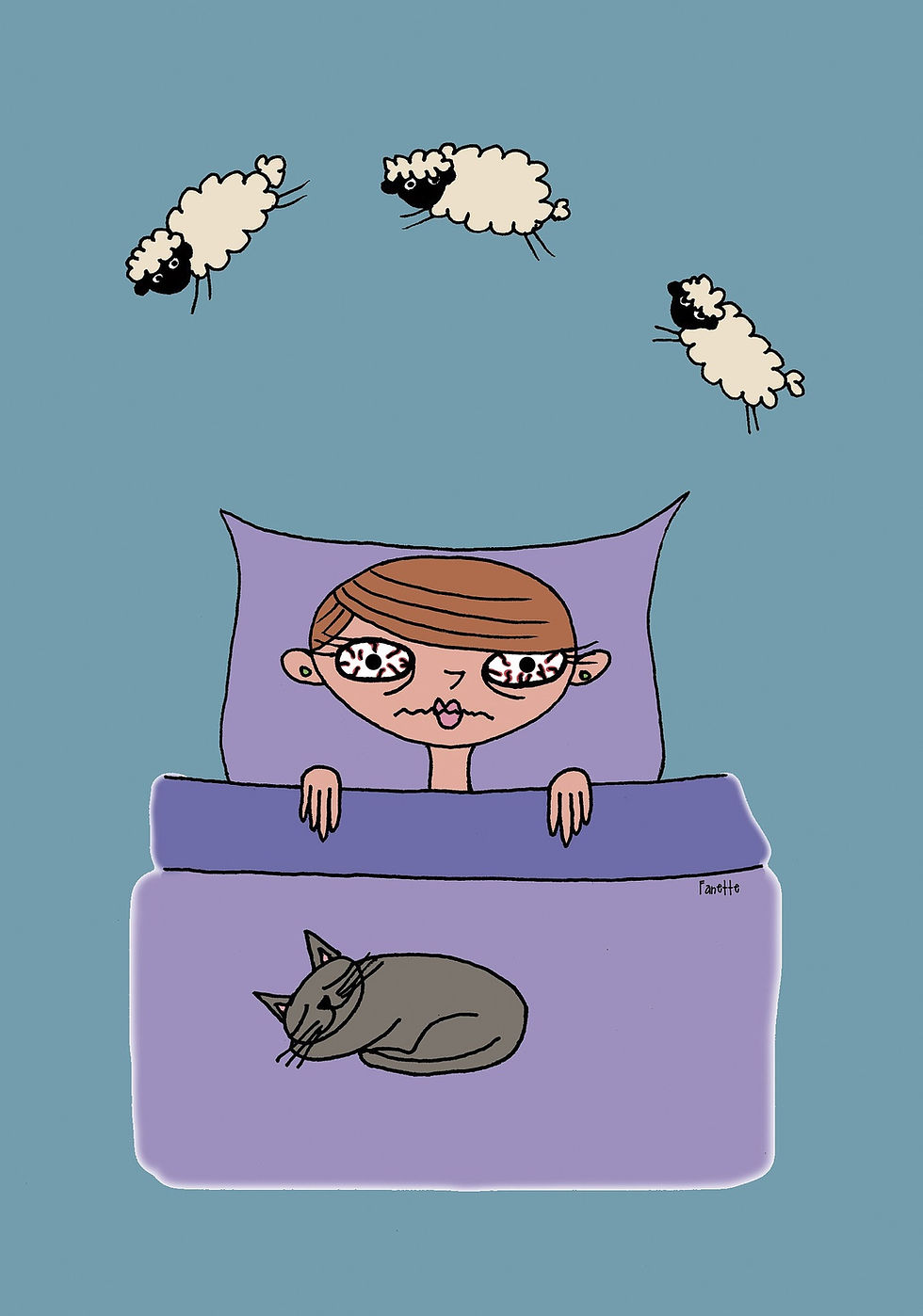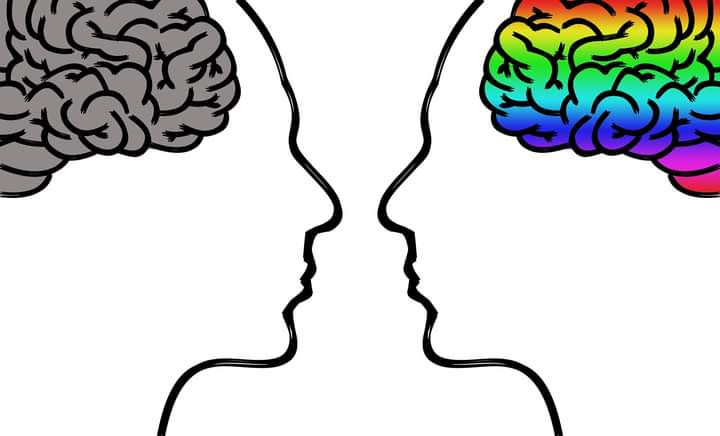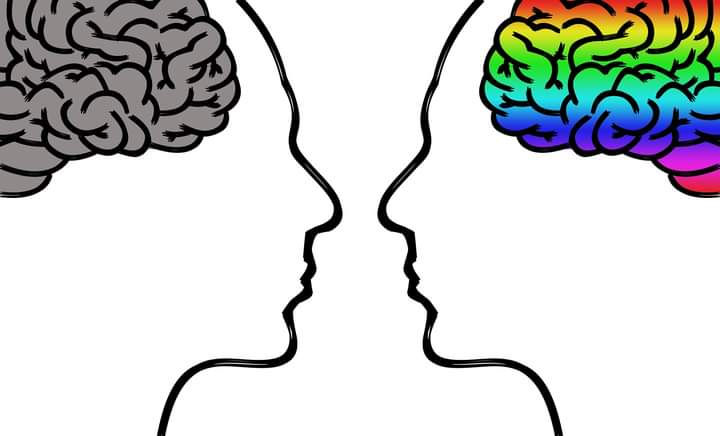Night Anxiety: Symptoms, Causes, and Treatment
- Debora Wiseman
- 31 de jan. de 2023
- 4 min de leitura
Have you ever heard of night anxiety?

Anxiety is a great enemy that affects millions of people worldwide. It is a combination of excessive day-to-day worries, fear and uncontrolled thoughts, generated by the lifestyle and uncertainty of the future. When these feelings take on disproportionate dimensions and the mind does not switch off when sleeping, nighttime anxiety appears.
Many people face the night, a moment of rest, as a great enemy, in endless torture, because they know that this is the moment when their anxiety will be ready to attack and destroy their hours of rest.
The most common feeling of anxiety usually appears in the form of anguish, nervousness, insecurity or fear in everyday life, and when this occurs in the pre-sleep period, it becomes even more disruptive.
Contrary to what many people believe, anxiety constitutes a very serious problem, called: Generalized Anxiety Disorder (GAD) which is suffered by many throughout the world.
When this problem manifests itself before going to sleep, bringing to the fore night anxiety, some points should demand our greatest attention, such as:
# The lack of healthy sleep: This will impair our performance on a daily basis;
# Produces stress, both at night and the next day, without the necessary rest, making it difficult for the level of concentration and memory, impaired by the absence of this healthy sleep.
So, this is the exact moment when we need to review our bedtime routine and observe the impact of this nocturnal anxiety, in addition to its motivations and what allows it to attack us.
When we prepare for sleep, we are automatically getting rid of all the distractions and all the stimulants that have been passing through the day, making room for intrusive thoughts.
This is nocturnal anxiety, the intruder that takes over our time to recharge our energies, overloading us even more.
Fortunately, for this type of problem, there are treatments and practices that help to combat it, even if it seems almost impossible for those who suffer from it every night.
Some symptoms of nighttime anxiety:
Symptoms can manifest during the day, but are more common at bedtime. They can vary from person to person and have different intensity. In some individuals, these symptoms will manifest themselves more aggressively, leaving them vulnerable and in others, it will be more subtle, causing only discomfort. They include:
> Restlessness;
> Accelerated thinking;
> Sleep interrupted one or more times;
> Intense or panting breathing;
> Fatigue;
> Difficulty falling asleep;
> Lack of attention during the day.
Causes of Night Anxiety:
Some factors have a direct impact on nighttime anxiety, According to a study done by Dr. Luc Staner of Rouffach Hospital, the prevalence of anxiety in people suffering from sleep disorders is around 25%. In addition, uncertainties about what may happen in the future and anticipation of events also contribute to stress and sleeping difficulties.
* Stress:when chronic, is a risk factor not only for this disorder, but also for others, such as depression. At high levels, it causes the body to release cortisol, an important hormone that acts in risky situations. The problem happens when stress is constant and cortisol levels remain high in the body.
* Sleep routine: Our body works like a clock. When sleeping, the same thing happens. Hormones work in each phase of sleep and, when the cycle is not respected, these hormones tend to deregulate. Having a good routine avoids night crises. It is important to have a bedtime, sleep with the light off, and not sleep with devices such as a cell phone or TV.
* Active concerns: The human mind is powerful, and it also demands to be educated. The constant concerns of our routine are a great enemy to minimize the brain's worries when sleeping.
Ways to Control and Treat Nocturnal Anxiety Attacks
>>> Wake up early and practice stretching.
>>> Organize, fragment and fulfill your day-to-day commitments, avoiding backlogs and procrastination.
>>> Respect your limits and don't compare yourself to others.
>>> Engage in physical, intellectual and social activities.
>>> Thought substitution technique can be useful in these cases. When a concern or bad feeling arises and takes your sleep, try to exchange that thought for what can happen for good.
Light meals before going to bed, maintaining a sleep routine, practicing physical activities, meditation and deep breathing techniques are factors that avoid this disorder.
>>> Seek self-knowledge.
Specialists who can diagnose and medicate night anxiety are:
General practitioner;
Psychiatrist;
Psychologist.
What to do during a nocturnal anxiety crisis?
It is very important not to try to fight against panic, as this is not a conscious mechanism, it is due to automatic brain mechanisms located in automatic or non-conscious regions. It forms part of our body”s complex defense system.
The person can perform some of the actions already mentioned above, such as: resorting to alternative therapy techniques, relaxation, meditation or prayer, for example, relaxing music and breathing control.
In addition to our tips, it is essential to seek professional help from a competent therapist. If you or someone in your family has any of the above mentioned symptoms, it is very important to seek help as soon as possible, thus preventing the problem from becoming more serious and chronic. In this way, it is possible to regain a good quality of life and live much better, with proper treatment.
In addition, it is ESSENTIAL that you continue with therapy sessions even if you feel better after starting drug treatment.
IMPORTANT: We are Holistic Therapists and our treatment is alternative. Even presenting satisfactory results, it is essential to emphasize that only duly qualified physicians can diagnose diseases, recommend treatments and prescribe medication.
All the best!
See you next week
Shalom!
Debora and Daniel Wiseman





Comentários